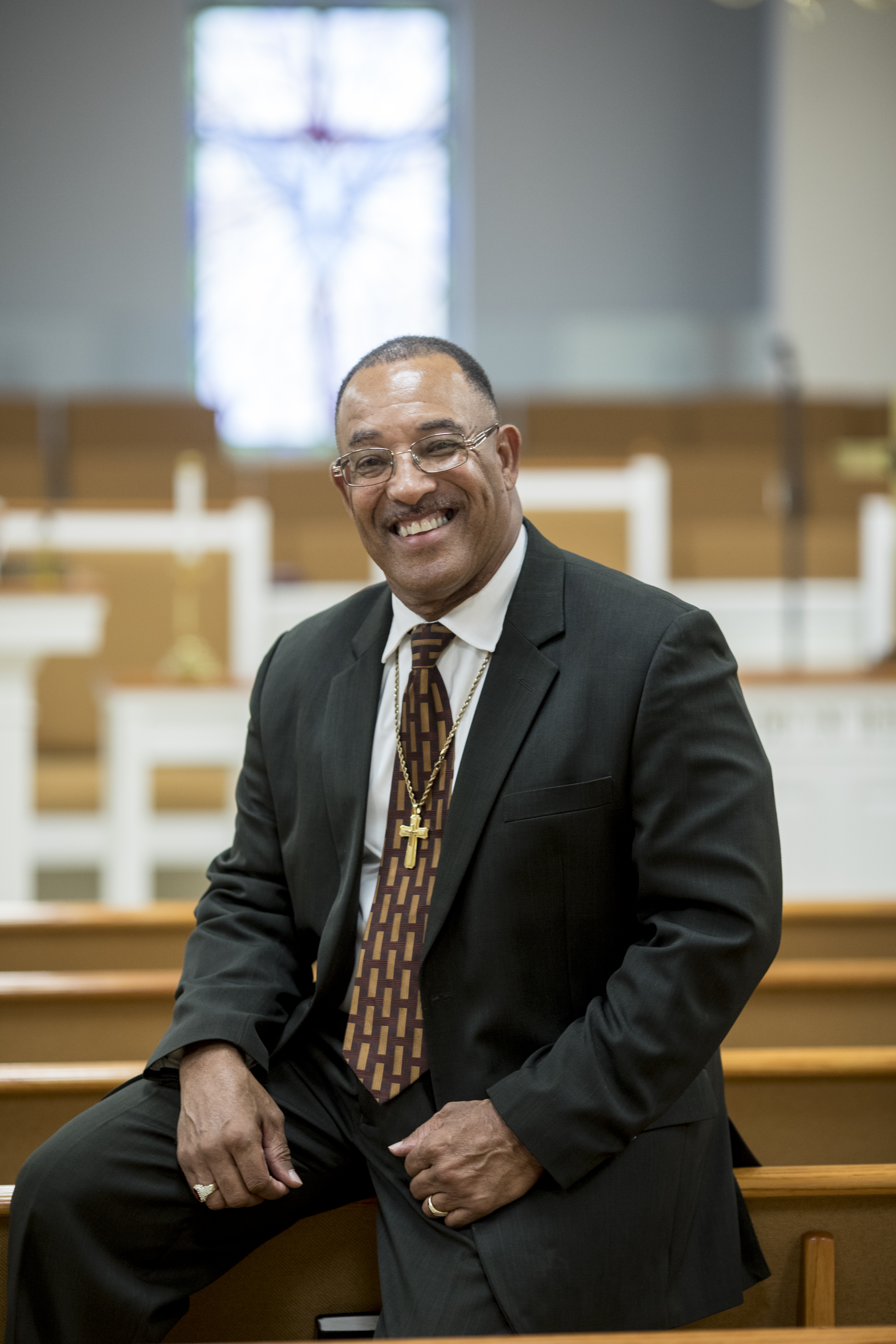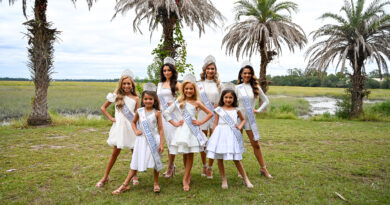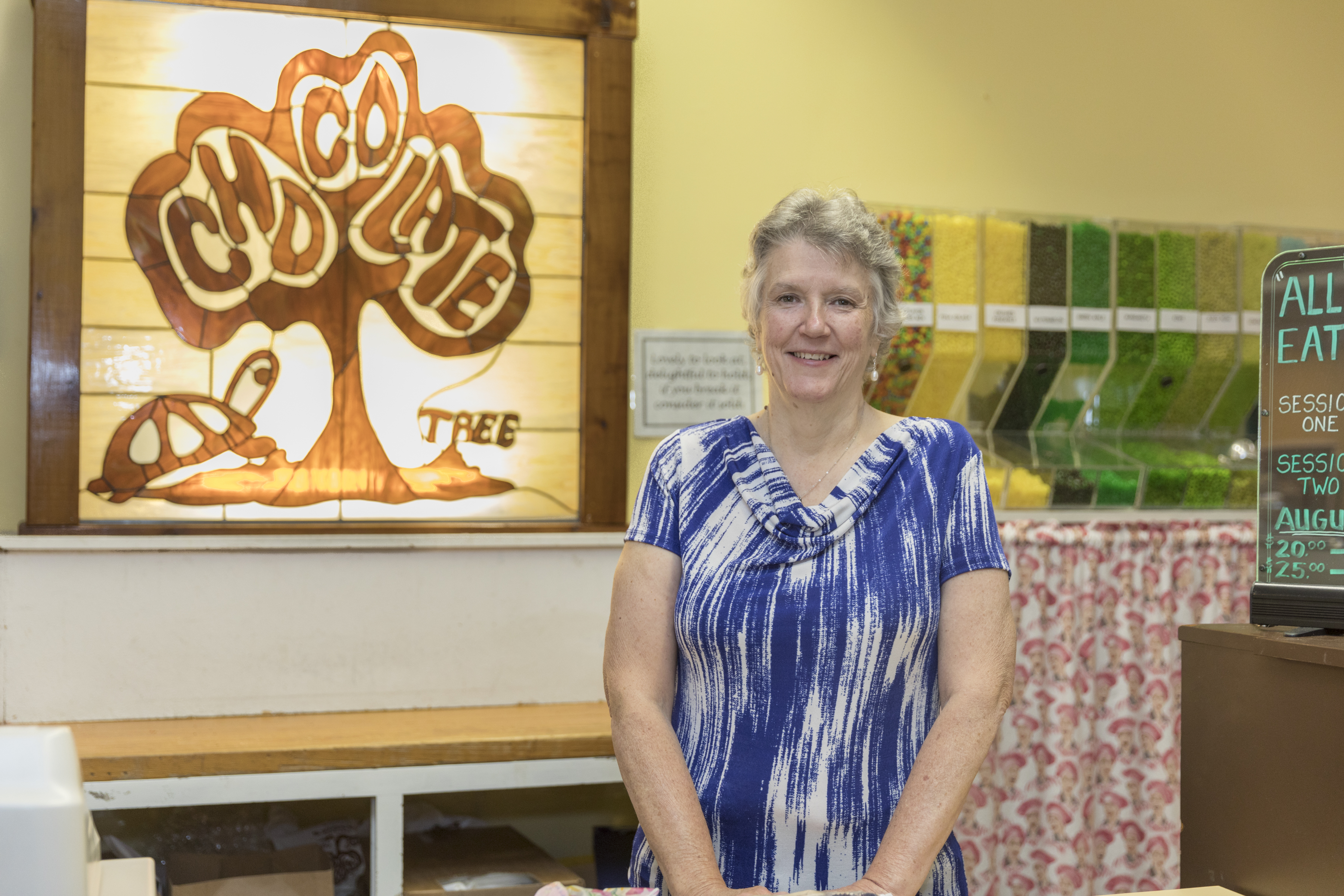CHAUNCY CAMPBELL
CHAUNCY CAMPBELL:
A Man of Many Vocations
Story By Mary Ellen Thompson Photos By John Wollwerth
MARINE GUNNERY SERGEANT CAMPBELL:
Retired from the Marine Corps in 1999, Chauncey Campbell and his wife, Gloria, first came to Beaufort from Warner Robins GA when he started his military career on Parris Island.
“In November 1979, I graduated from Boot Camp at MCRD Parris Island, South Carolina. In 1980 to 1982, I took my first tour in Okinawa, Japan. In 1982 to 1992, I was stationed in Camp Lejeune North Carolina. From 1992 to 1994, I was a Drill Instructor at MCRD Parris Island recruit training battalion, and from 1994 to 1995, I worked at the Weapons Field Training Battalion as a Range Officer of primary marksmanship Instructors. In 1995-1996, I traveled back to Okinawa, Japan as a squadron Gunnery Sergeant with the air wing. In 1996-1999, back to Parris Island, I retired in August 1999.”
CIVILIAN CAMPBELL:
His face lights up when he talks about his wife and children. “My daughter’s names from the eldest to the youngest: Sonja, Jessica, Erica. Jessica and her son, my grandson Jadyn, live here in Beaufort and Sonja and Erica both live in Atlanta, Georgia. Erica is married to her college sweetheart Kevin.”
Thinking back, Mr. Campbell laughs as he remembers, “When I took Gloria away from home in 1979, her dad told me I was taking his cook away; and boy can she cook! He told me if she ever forgot how, to just bring her back to him for a refresher! She is a real sweetheart – she has a special place in her heart for children and the elderly. Gloria has been a teacher’s assistant at Laurel Bay for 20 years; when she took the girls to school, she would hang around until they asked her if she wanted to help out and that’s how she became a teacher’s assistant.”
Currently Mr. Campbell works at MCAS in the security manager’s office doing background checks on incoming industrial personnel; he comments that the rules are getting more stringent.
In his free time he reads the Bible, articles about other ministries, and fiction. “I would read the Little Red Hen and Little Engine That Could as sermons and translate that into being helpful and positive.” Fun, he says, is getting away with Gloria; “She has nine sisters – we visit her family all over Georgia.”
What is his favorite holiday? “My favorite holiday, or should I say holidays, are Christmas, Thanksgiving and Independence Day. They’re all holidays that center around gathering with family and friends – something I think is very important.”
APOSTLE CAMPBELL:
“I’ve been a pastor at Old Fort Baptist Church for twenty-one years.”
Pastor Campbell’s first ministry experience occurred when he was in the service. “I was in Rome when I first felt the call to God. I was deployed on a naval vessel that didn’t have a chaplain, so I filled in. We were stationed at Camp Lejeune then; I was ordained by the Trent River-Oak Grove Association.
“When I got orders to be a drill instructor, people asked me how I thought I could be a drill instructor and a pastor? You render unto God what is God’s, and unto Caesar what is Caesar’s. You treat people with respect; I had a successful career as a drill instructor.”
In days of increasing informality, he explains why he wears a robe when preaching. “If you get pulled over by the police, they are wearing uniforms. If you go to the courthouse, the judge wears a robe,” acknowledging that people wear clothing and uniforms that identify who they are. “I guess I think without my robe, the spirit won’t move you.”
When asked, “When you’re preaching, how do you decide which color robe you will wear?” Pastor Campbell replies, “When it comes to robe selection, I traditionally wear a white robe on communion Sundays. Outside of that I have a wide array of robes to choose from when it comes to everyday evangelizing.”
Does he write all his own sermons? “Yes, I write all my sermons. I think it’s important to speak from a place of authenticity and writing those words for myself allows that to happen.” How long does it take to write one? “My usual process is starting the Sunday after a sermon and finalizing the message the following Saturday night before the sermon. It usually takes at least a week to shape the message I’d like to share, but that time frame and process can very from message to message.”
COACH CAMPBELL:
Coach Campbell started coaching sports, football, baseball and basketball, when his grandson, Jadyn, started to play t-ball. “It gave me the opportunity I missed with my girls because I was busy with the Marine Corps when they were young. When I was thinking about being a coach, someone said to me, ‘You can never go wrong investing in children.’ There is a parallel, I’m doing the same thing on Sunday morning – I’m coaching in church.
“My dad was the first black deputy in our town in the 1960’s. I played sports growing up; I played Little League and my dad was a coach. I played football in high school. The Warner Robins Little League team recently won the World Series. It’s important to teach children values and sportsmanship: they need to know that you win some, and you lose some. If a child isn’t rooted and grounded, it will change them. Sports are an outlet. So many kids don’t have guidance; education is paramount to everything we do. The world will suck you in; you need to have initiative.
“Kids are funny. In t-ball they may run to second or third base instead of first. They are all over the place, they don’t understand the progression yet. It’s a task, coaching; you have to want to do this because it’s all volunteer.”
He explains his greatest challenge in coaching. “Often, children who are in the same age group have varying sets of skill level when it comes to grasping the technical aspects of a sport. One way I take on that challenge is by working with them on their confidence in the game which gives them the motivation they need to believe they can learn how to play – whether that is shooting a basketball, running a football, or catching a baseball.”
What does he consider to be his greatest success in coaching? “Coaching isn’t just about teaching your team how to win, it’s about showing them how to best take on the challenges that come with every game. My greatest success is seeing the children meet those challenges by not only learning how to win, but how to win and lose.”
And what is Coach Campbell’s greatest joy? “The greatest joy in coaching sports to children is watching them develop, both as individual players and collectively as they learn how to work together as a team.”
So here you have it: Former Marine, Husband, Father, Grandfather, Pastor, Coach. All jobs that take dedication and training; hard work and passion. But most of all, Chauncey Campbell is a believer. He believes in the best of people, he believes in faith, he believes in his country – all of which are nobel pursuits.
About his life, he muses, “To whom much is given, much is required.” He would be most happy to invite you attend a service at the Old Fort Baptist Church in Port Royal on a Sunday morning.




